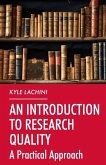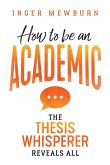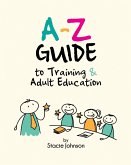The West and Islam are in crisis. They are alienated in different ways from spirituality or God-consciousness. As a result, there is demoralisation, corruption and crime. For the fear of God or God-consciousness restrains people from perpetrating sins and crimes. Of course, there are many exceptions. But alienation is the rule. The West is in a crisis because it drifted from its spiritual roots. The perceptions that "seeing is believing," characteristic of empiricism, eroded awareness of "the unseen." Physical reality is perceptible empirically. Metaphysical reality is perceived differently. Present-day "thinking" is that all assertions about religiosity or ethics are expressions of emotions. If a phenomenon is not perceptible through the senses, it does not exit. Empirical knowledge reflects materialism. Moral relativism undermines the trust in Truth. Politics is separated from spirituality as well as morality. The separation of ethics from politics triggered a backlash against "liberal" perspectives. Traditionists advocate a return to conservative values. The deterioration of the knowledge of revelation boosted misguidance. A few argued for transcending the difference between good and evil. This hastened the process of decline. Anti-religious persons argue for the pre-eminence of the few compared to to the masses. Extremists propound racism. Wars result from confusion. Islam emerged as a response to polytheism. Unfortunately, the knowledge of Islam did not remain unaffected. While the transcript of the revelation sent to Muhammad remains uncorrupted, knowledge was corrupted. Knowledge of the Book of Allah was corrupted by recourse to tradition and the teaching of "abrogation." Recourse to tradition transformed Islam into "traditional" Islam. The alleged abrogation of the peace verses by the verse of the sword transformed Islam into Islamism. Knowledge was warped by the politicization of exegesis. This required the re-articulation of revelation to further the territorial aspirations of hawkish rulers. Thus, an enquiry of "what went wrong" is required. It was not just a lack of freedom that is producing problems. The problem is deeper than that. The problem is the turn from revelation to tradition. Muslims would judge by what Allah did not "send down" (anzala). Muslims would "judge" the Book of Allah by traditions. Thus, the retrieval of the true teaching of Islam will require a disengagement from tradition, including the writings of traditionists, compromised by endorsing the political aspirations of their rulers. Thus, a fresh effort is required. The Book of Allah requires being read on its terms, not on terms alien to its teachings. Muslims are experiencing tensions with Muslims of different persuasions as well as with the West. There are acts of terrorism and wars. Tensions proliferate. Illiteracy is endemic. Corruption is widespread. The Muslims are in disarray. The knowledge of the umma was corrupted. The knowledge was tainted by political pressures. Hawkish rulers endeavoured to procure a rendition of revelation that would endorse practices proscribed in the Book of Allah. Hawkish rulers wished to return to the ways of their predecessors. Traditions of the prophet were recorded in defiance of his prohibition of recording his traditions. The recording of the traditions was a turning point. The umma turned from revelation to tradition. The words of men would take on greater authority than the words of God. The subordination of revelation to tradition was reflected in the perception that "the sunna judges the Quran." This is an expression of shirk, as it reverses the relationship between Allah and man, it subordinates the words of God to the "judgement" of persons. The perception that tradition "judges" revelation suggests that the authority of traditions - words of transmitters - surpasses that of revelation.
Bitte wählen Sie Ihr Anliegen aus.
Rechnungen
Retourenschein anfordern
Bestellstatus
Storno






